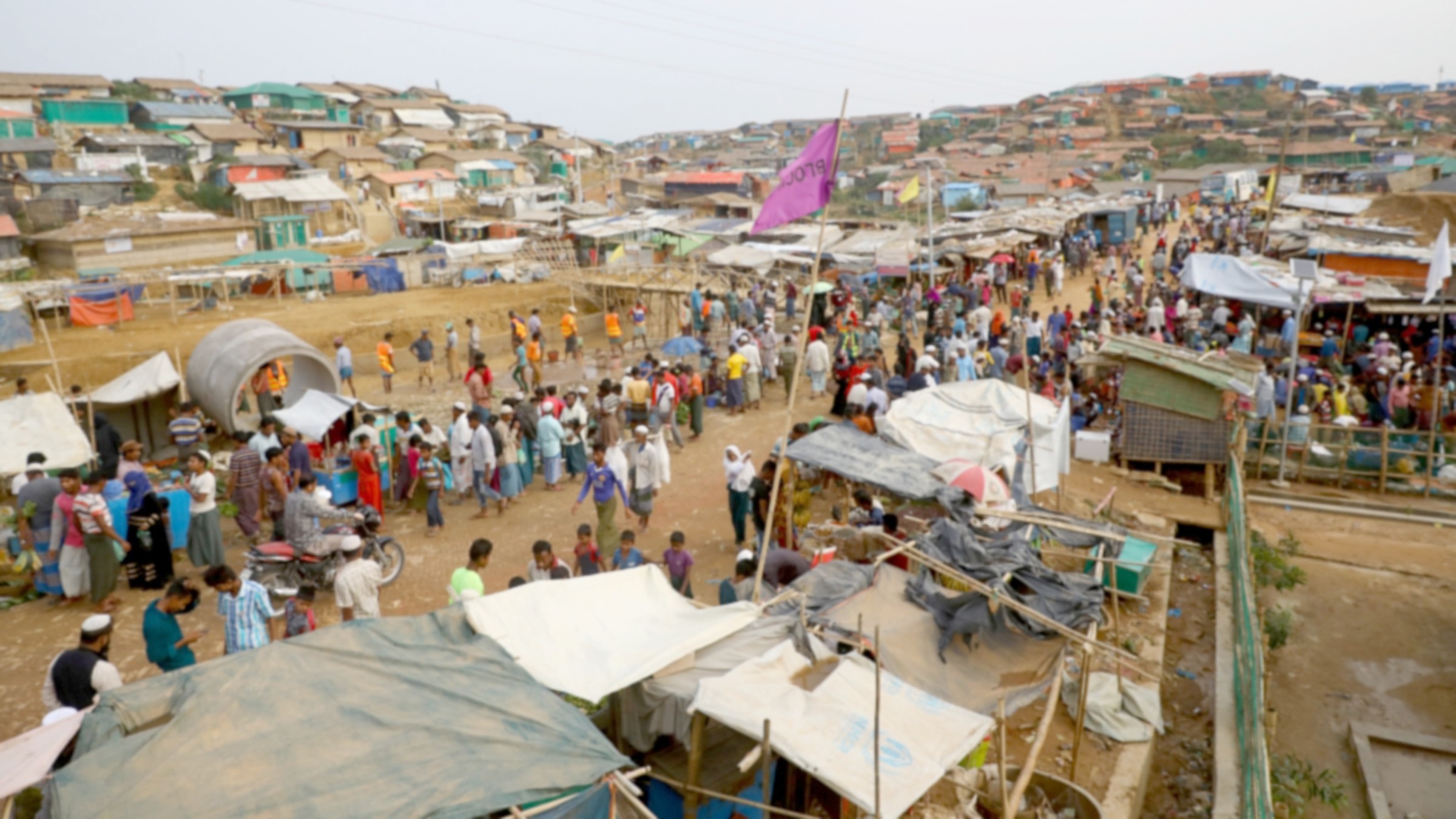By Joshua Carroll
Island chosen to house 23,000 refugees may not be ‘truly habitable’, UN’s special rapporteur on Myanmar warns. Bangladesh risks creating a “new crisis” for Rohingya refugees if it goes ahead next month with plans to relocate 23,000 refugees to an uninhabited island prone to cyclones, a United Nations human rights envoy has warned. Yanghee Lee, the UN special rapporteur on Myanmar who visited Bhasan Char recently, told the Human Rights Council in Geneva on Monday that she was unsure if the Bay of Bengal island was “truly habitable”.
She also warned “ill-planned” relocations without the consent of refugees “have the potential to create a new crisis”. Rohingya advocates say the refugees would effectively be trapped on Bhasan Char, a muddy, low-lying island that floods frequently during monsoon season and offers few livelihood opportunities. More than 730,000 Rohingya are confined to overcrowded camps in Bangladesh after fleeing a campaign of arson, murder and rape waged in Myanmar by the country’s military since late 2017.
In Myanmar, ‘pervasive hate speech and shrinking freedom’
Despite the objections, the Bangladeshi government hopes to eventually move 100,000 Rohingya to the island, arguing this would relieve pressure on the camps.
‘Everyone will refuse’
Nay San Lwin, a Rohingya activist, said he believed the only way officials could get people to move to the island was by force. “Everyone in the camps will refuse for sure,” he told Al Jazeera. “No one wants to be relocated to Bhasan Char.” Lee’s remarks came as she delivered the findings of a report based on visits she made to Thailand and Bangladesh in January. The Myanmar government, led by Nobel Peace laureate Aung San Suu Kyi, denied her access to the country during her trip and did not respond to her written questions about the human rights situation in Myanmar.
In a December letter, the government told Lee her visits were “counterproductive”, claiming her previous reports lacked “objectivity and impartiality”.
Bangladesh tells UN it cannot take more Myanmar refugees
Lee said in the recently released report that the UN “must be allowed to conduct a full technical and humanitarian assessment” of Bhasan Char and that Rohingya should be given “go and see” visits to determine if they wished to move there. Bangladesh has enlisted British and Chinese engineers to help prepare the island for the planned arrivals. The involvement of British firm HR Wallingford in the project has sparked criticism from UK-based campaigners.
The advocacy group Burma Campaign UK in December named the firm on a “dirty list” of companies that it said were involved in projects related to human rights violations. The firm did not immediately respond to Al Jazeera’s request for comment on Monday. A spokesperson has previously told The Guardian the company has no business inside Myanmar and has been engaged in Bangladesh to design flood defences on Bhasan Char to internationally recognised standards.
Bangladesh risks creating a “new crisis” for Rohingya refugees if it goes ahead next month with plans to relocate 23,000 refugees to an uninhabited island prone to cyclones, a United Nations human rights envoy has warned. Yanghee Lee, the UN special rapporteur on Myanmar who visited Bhasan Char recently, told the Human Rights Council in Geneva on Monday that she was unsure if the Bay of Bengal island was “truly habitable”. She also warned “ill-planned” relocations without the consent of refugees “have the potential to create a new crisis”.
Rohingya advocates say the refugees would effectively be trapped on Bhasan Char, a muddy, low-lying island that floods frequently during monsoon season and offers few livelihood opportunities. More than 730,000 Rohingya are confined to overcrowded camps in Bangladesh after fleeing a campaign of arson, murder and rape waged in Myanmar by the country’s military since late 2017.
In Myanmar, ‘pervasive hate speech and shrinking freedom’
Despite the objections, the Bangladeshi government hopes to eventually move 100,000 Rohingya to the island, arguing this would relieve pressure on the camps.
‘Everyone will refuse’
Nay San Lwin, a Rohingya activist, said he believed the only way officials could get people to move to the island was by force. “Everyone in the camps will refuse for sure,” he told Al Jazeera. “No one wants to be relocated to Bhasan Char.” Lee’s remarks came as she delivered the findings of a report based on visits she made to Thailand and Bangladesh in January.
The Myanmar government, led by Nobel Peace laureate Aung San Suu Kyi, denied her access to the country during her trip and did not respond to her written questions about the human rights situation in Myanmar. In a December letter, the government told Lee her visits were “counterproductive”, claiming her previous reports lacked “objectivity and impartiality”.
Bangladesh tells UN it cannot take more Myanmar refugees
Lee said in the recently released report that the UN “must be allowed to conduct a full technical and humanitarian assessment” of Bhasan Char and that Rohingya should be given “go and see” visits to determine if they wished to move there. Bangladesh has enlisted British and Chinese engineers to help prepare the island for the planned arrivals. The involvement of British firm HR Wallingford in the project has sparked criticism from UK-based campaigners.
The advocacy group Burma Campaign UK in December named the firm on a “dirty list” of companies that it said were involved in projects related to human rights violations. The firm did not immediately respond to Al Jazeera’s request for comment on Monday. A spokesperson has previously told The Guardian the company has no business inside Myanmar and has been engaged in Bangladesh to design flood defences on Bhasan Char to internationally recognised standards.


